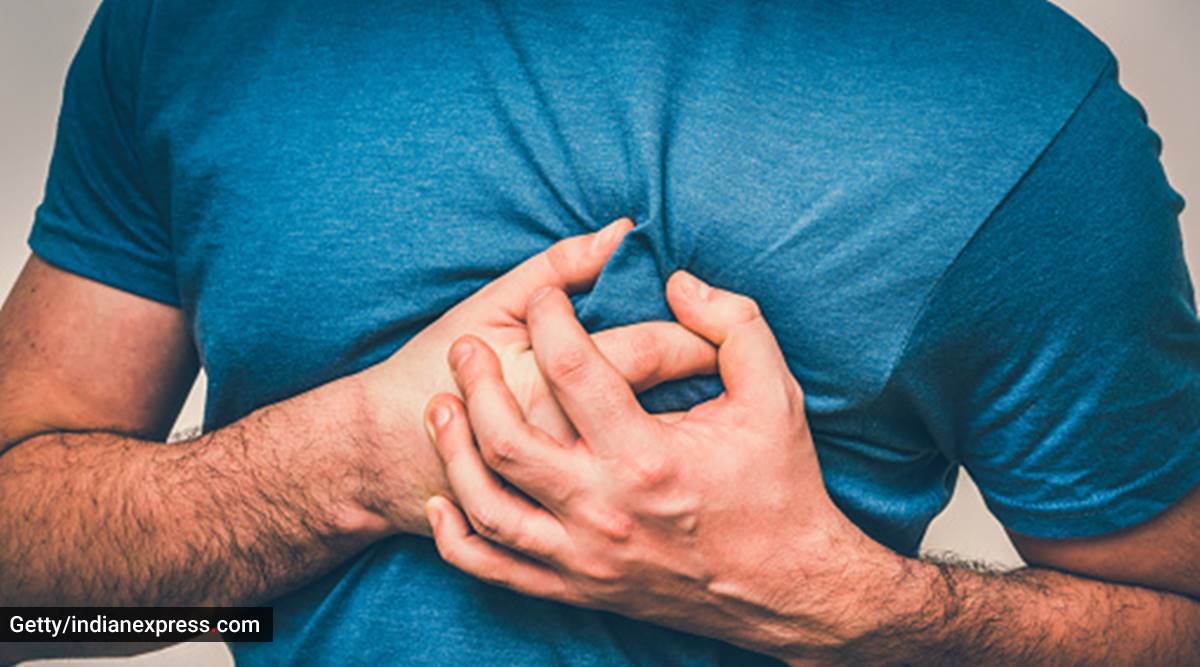World Heart Day 2020: Don’t ignore these 10 warning signs of an unhealthy heart
While not all heart problems are accompanied by clear warning signs, it is important to be aware of the common symptoms, suggests Dr Rajneesh Kapoor, Vice Chairman of Interventional Cardiology, Heart Institute, Medanta

Caring for your heart is important because it is one of the most vital organs in the body. It is the heart that keeps you alive by pumping blood to all the other organs. Should the heart stop doing its work, the entire system may fail. Which is why it is important to get regular check-ups done to see if everything is alright with the organ.
Dr Rajneesh Kapoor, Vice Chairman of Interventional Cardiology, Heart Institute, Medanta says that while not all heart problems are accompanied by clear warning signs, it is important to be aware of the common symptoms so as to be able to detect the slightest change or abnormality and seek medical intervention well within time to prevent the situation from worsening.
The doctor suggests you be on the lookout for these 10 warning signs of an unhealthy heart.
Chest discomfort
This is one of the most common signs that can signal danger for your heart. You can experience tightness, pain or pressure on the chest when you have a blocked artery or while having a heart attack. The symptom can occur while resting or during some physical activity and usually lasts for a few minutes. The pain is brief and the spot where you are experiencing the pain hurts more when touched or pushed. In certain cases, especially with women, a heart attack may occur without chest pain.
ALSO READ | World Heart Day 2020: Can irregular periods affect women’s heart health?
Nausea, indigestion and heartburn
Some people may experience nausea, indigestion, heartburn or stomach pain during a heart attack. These symptoms can be accompanied by vomiting as well. Therefore, in a lot of cases, a heart attack can be mistaken for indigestion. Similarly, stomach problems can also happen due to other reasons, but you must be aware that it can signal a heart attack as well.
Radiating pain
Another common warning sign of heart disease is a pain that spreads downwards on the left side of the body. It usually originates from the chest and moves outwards to the arms. Arm pain can also be a symptom of a heart condition.
Fainting, dizziness or lightheadedness
Fainting or dizziness is commonly experienced by everyone. While you can faint for reasons such as heat from the sun, poor ventilation, getting up too fast from a sitting or lying down position, anxiety or shock, when it is accompanied by chest discomfort or shortness of breath, it can indicate something more serious like a drop in blood pressure. This can lead to a disruption in the pumping ability of the heart.
ALSO READ | Amid pandemic, cardiologists say people should not neglect getting regular check-ups
Pain in the throat or jaw
Throat or jaw pain is commonly caused by a muscular issue, cold or sinus. If, however, you experience pain or discomfort in the chest that spreads up to your jaw or throat, it can signal a heart attack.
Fatigue
Exhaustion is another warning sign of a heart problem. If you experience fatigue post some activity, such as climbing the stairs or carrying groceries, which was not a challenge for you earlier, it may signal a problem. Extreme exhaustion or unexplained weakness, sometimes for days at a time, can be a symptom of heart disease, especially for women.
Snoring
While snoring during sleeping is normal, unusually-loud snoring that sounds like gasping or choking can be a sign of sleep apnea, a condition where breathing is interrupted for brief moments while sleeping. This creates additional stress on your heart giving rise to heart problems.
Sweating
Breaking out in a cold sweat for no specific reason can signal a heart attack. If this happens along with any of the aforementioned symptoms, seek medical help immediately!
ALSO READ | US man dies of ‘excessive licorice’ or mulethi: Know how much to have
Irregular or abnormal heartbeat
You may commonly experience a racing or rapidly-beating heart when nervous or excited, but if this continues for more than a few seconds, it can indicate a problem. Skipping a beat or two for a prolonged period, or frequently, can signal a condition called ‘atrial fibrillation’ (an irregular, often rapid heart rate that commonly causes poor blood flow) that can lead to blood clots, stroke, heart failure and other heart-related complications.
Swelling of body parts
Swelling of the legs, ankle and feet can indicate that your heart is not pumping blood as effectively as it should. This leads to blood backing up in the veins which causes bloating. In case of a heart failure, the filtering ability of your kidney to remove excess water and sodium can also be affected, resulting in bloating.
For more lifestyle news, follow us: Twitter: lifestyle_ie | Facebook: IE Lifestyle | Instagram: ie_lifestyle
? The Indian Express is now on Telegram. Click here to join our channel (@indianexpress) and stay updated with the latest headlines
For all the latest Lifestyle News, download Indian Express App.
Source: Read Full Article
